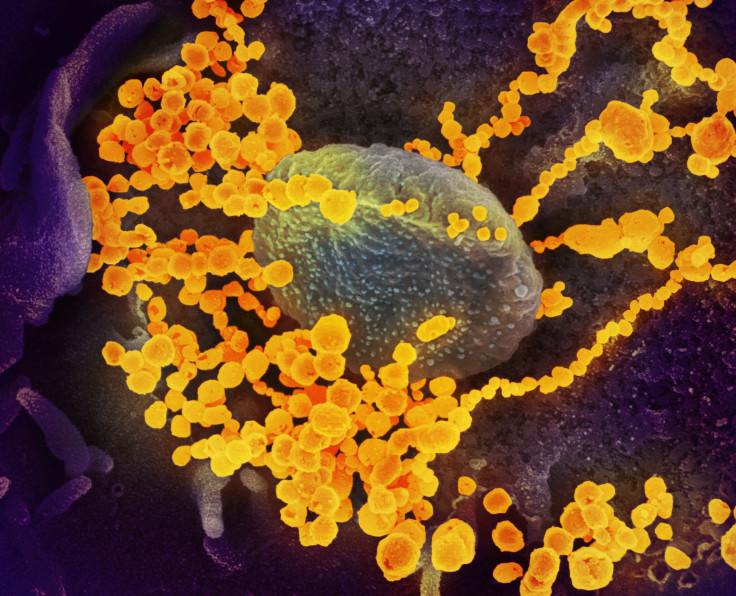Coronavirus Treatment: Cannabis Enzymes Could Help Block 'Gateway' For COVID-19, Study Reveals
KEY POINTS
- A Canadian study claimed CBD opens a new avenue toward treating COVID-19 by preventing the ability of SARS-CoV-2 to bind with human cells
- This finding seems to indicate medical cannabis products could become a safe adjunct therapy for the treatment of COVID-19
- SARS-CoV2 gains a foothold in a human body via angiotensin-converting enzyme II (ACE2)
Cannabidiol (CBD) -- the active ingredient in cannabis said to treat pain, insomnia and anxiety -- might also be able to block the entry of SARS-CoV-2 (severe acute respiratory syndrome coronavirus 2), the virus that causes COVID-19, into human cells.
This proposition is to be found in an intriguing new study from the University of Lethbridge (U of L) in Alberta, Canada, titled “In Search of Preventative Strategies: Novel Anti-Inflammatory High-CBD Cannabis Sativa Extracts Modulate ACE2 Expression in COVID-19 Gateway Tissues.” The non-peer-reviewed, preclinical study was published in the journal Preprints.
The study argued inhibition of viral entry into the human body "constitute plausible therapeutic avenues." It pointed out the well-known fact SARS-CoV2 is transmitted from person to person through respiratory droplets.
SARS-CoV2 then gains a foothold in a human body via angiotensin-converting enzyme II (ACE2). This enzyme is present in lung tissue, the oral and nasal mucosa, kidney, testes, and the gastrointestinal tract. Its role is to lower blood pressure by catalyzing the hydrolysis of angiotensin II (a vasoconstrictor peptide) into angiotensin (1–7), which is a vasodilator.
On the other hand, ACE2 also serves as the entry point into cells for some coronaviruses, including the SARS (Severe acute respiratory syndrome) coronavirus and SARS-CoV-2. This being the case, "Modulation of ACE2 levels in these gateway tissues may prove a plausible strategy for decreasing disease susceptibility," contended the Canadian study.
To bear out this thesis, U of L researchers conducted a study using artificial 3D models of oral, airway and intestinal tissues coupled with a limited sample of high CBD cannabis sativa extracts to modulate ACE2 gene expression and ACE2 protein levels. The results indicated hemp extracts high in CBD could help block proteins that provide a “gateway” for COVID-19 to enter host cells.
“Angiotensin-converting enzyme 2 (ACE2) has been generally accepted by the scientific community as a receptor required for the entry of SARS-CoV-2 into human cells,” said Dr. Igor Kovalchuk, CEO of Pathway Rx and holder of a Health Canada License for Cannabis Research.
“Our initial findings warrant further investigation but it’s possible that medical cannabis products could become a safe adjunct therapy for the treatment of COVID-19.”
The cannabis sativa plant, especially one high in anti-inflammatory CBD, is now being proposed to modulate gene expression and inflammation. This means the anti-inflammatory CBD enzymes in the marijuana plant (cannabis sativa) might be used to modulate angiotensin-converting enzyme II (ACE2) expression in COVID-19 target tissues.

The study is a partnership among U of L, Pathway, which works to develop cannabis therapies to treat specific diseases, and cannabinoid-based oral health company, Swysh Inc.
© Copyright IBTimes 2024. All rights reserved.











